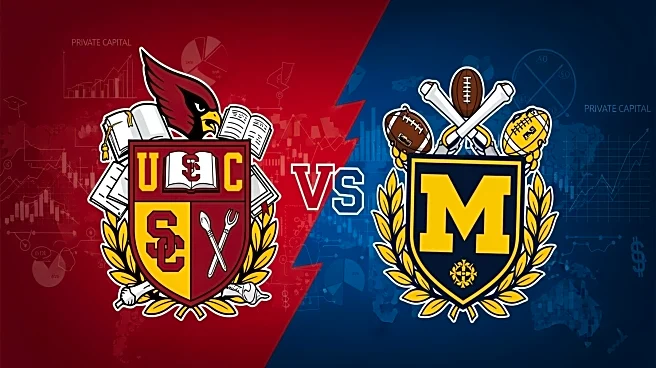What's Happening?
The Big Ten Conference's proposed $2 billion-plus private capital deal is facing scrutiny from USC and Michigan. During a joint meeting, trustees from both universities expressed skepticism about the plan,
which involves spinning off a new entity, Big Ten Enterprises, to hold leaguewide television rights and sponsorship contracts through 2046. The deal promises a significant financial infusion to each Big Ten school, but USC and Michigan are concerned it doesn't address the root issue of soaring costs in athletic departments. They are apprehensive about selling equity in a university asset and believe there are better funding options available. The deal remains fluid, with ongoing negotiations and no official vote scheduled.
Why It's Important?
The proposed deal is significant as it aims to provide financial stability to Big Ten schools, many of which are struggling with debt and rising operational expenses. The infusion of funds could help these schools compete more effectively in college athletics, particularly against the SEC. However, the opposition from USC and Michigan, two of the conference's most storied athletic brands, highlights the complexities of balancing immediate financial needs with long-term strategic interests. Their concerns could influence the final terms of the deal and impact the future structure of college athletics funding.
What's Next?
A conference-wide call with league presidents and athletic directors is tentatively planned, but further negotiations may be needed to address the concerns raised by USC and Michigan. The deal's outcome could set a precedent for how college athletic conferences manage media rights and financial challenges. Stakeholders will need to consider the implications of extending the Big Ten's grant of rights through 2046 and the potential for further expansion or formation of a super league.










